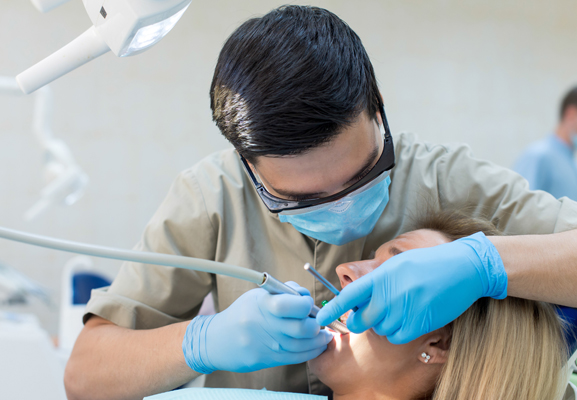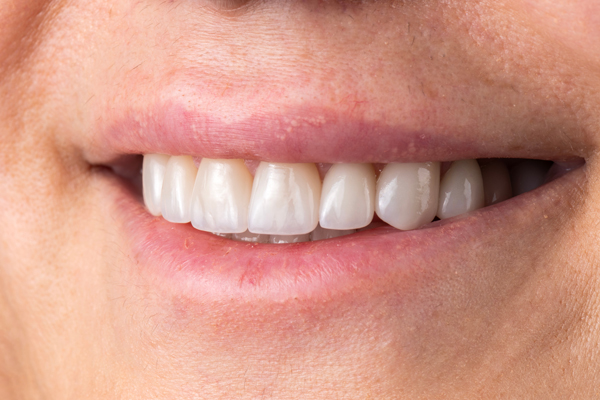Tell Your Dentist About Prescriptions Charlotte, NC
Many people wonder whether their dentist needs to know details about their general medical history, particularly when it comes to their prescription medications. It can feel intimidating to open up to a dentist about personal information. Still, a complete health dentist integrates information about your overall health to provide you with the best oral care, so it is important to strive for transparency.
For more information about the comprehensive care provided by complete health dentists, our team at Randolph Dental Care in Charlotte is here to help. Call us at (704) 366-3622 to learn more.
Conditions that Might Make You Ineligible for Certain Procedures
One of the most important reasons that patients should share their prescription list with their dentist is so they can better understand their medical history. Conditions in the mouth can affect body systems seemingly far-removed. Having background information about patients' general health is vital in implementing practices with the oral-systemic link in mind.
For example, suppose a patient confides in their dentist that they are taking medication for a heart condition. In that case, this revelation can prompt their dentist to inquire further about their cardiac status. On the other hand, suppose patients have a specific condition such as valvular heart disease, congenital heart disease, have previously had heart surgery, or a condition known as infective endocarditis. In that case, some dental procedures should not be performed or may need special advanced planning. This is why it is important for patients to keep their dentist in the loop.
“… having background information about patients’ general health is vital to appreciating the oral-systemic link.”
Procedures Prevented by Certain Medications
A patient's medical history is not the only factor that can impact their eligibility for certain dental procedures. Their prescription medications can also necessitate special planning or avoidance of certain dental procedures. For example, if patients are taking certain medicines that thin their blood, also known as anticoagulants, they should make sure to inform their dentist before any procedures.
Another example of medications that can impact dental care is the medication class of bisphosphonates used to treat osteoporosis. Rarely, bisphosphonates can cause serious dental complications, so patients' primary dental care provider must be aware of this medication so that they can sufficiently monitor their status.
“… prescription medications can also necessitate special planning or avoidance of certain dental procedures.”
Dental Prescriptions that Would Conflict with Other Medications
After a patient's dental evaluation, their dentist may want to prescribe a medication, particularly if a patient is experiencing pain or an infection. Every drug carries a unique set of side effects and the potential to interact with other medicines. Thus, it is crucial for patients to keep their dentist informed about all medications they are taking, including supplements. This allows the dentist to screen for medication interactions.
Medicines that dentists commonly prescribe include antibiotics, antifungals, anti-inflammatories, and narcotic analgesics. During a procedure, a complete health dentist may also provide an anesthetic medication or a medication to help with anxiety, so they must know what is in a patient's system that could potentially cause harm or an undue reaction.
“Medicines that dentists commonly prescribe include antibiotics, antifungals, anti-inflammatories, and narcotic analgesics.”
Check out what others are saying about our dental services on Yelp: Tell Your Dentist About Prescriptions in Charlotte, NC
Altering Treatment Based on Medications
Many health conditions require medications that must be taken and pose fatal risks if a patient stops taking them. Complete health dentists have extensive background and education regarding systemic health conditions requiring medications and their adverse effects when coupled with oral medications. They can adjust dosages, prescribe alternatives, and alter dental treatments to fulfill their patient's needs.
It may be necessary to alter non-invasive dental treatments for patients with pre-existing medical conditions or patients taking certain medications. It is also possible to postpone or alter invasive treatments and surgeries if medications pose risks or interfere with a patient's medical condition. Complete health dentists can initiate, modify, and alter treatment based on medical history with the discretion of the patient's primary care provider and prescribe medications that sync with those the patient is already taking.
“It may be necessary to alter non-invasive dental treatments for patients with pre-existing medical conditions or patients taking certain medications.”
Questions Answered on This Page
Q. What conditions might make me ineligible for a dental procedure?
Q. What medicines can interfere with dental procedures?
Q. What kinds of medications do dentists prescribe?
People Also Ask
Q. How is diabetes affected by oral hygiene?
Q. How do preexisting conditions affect dental care?
Q. Am I at high risk for developing oral cancer?
Q. What pre-existing conditions are affected by dental health?
Q. How often should a patient get an oral cancer screening?
Q. What lifestyle choices help promote good oral health?
Q. What are some of the reasons one might need a tooth extraction?
Frequently Asked Questions About Opening Up to Your Dentist
Q. How do dentists treat patients with heart valve conditions?
A. First, your dentist will ask questions about the nature of the heart condition, including any medications and procedural history. After reviewing this information and potentially coordinating with your medical doctor, the dentist may prescribe you an antibiotic before the procedure to lower their risk of developing a heart infection known as infective endocarditis.
Q. Will a dentist prescribe an antibiotic if I have had a joint replacement?
A. Most likely, no. According to the American Dental Association, the most current guidelines recommend against prophylactic antibiotics (antibiotics taken before a procedure) in patients who have prosthetic joint implants.
Q. What other conditions or prescriptions are important for my dentist to know about?
A. In general, your dentist should know about all of your prescription medications because even if a prescription may not seem related to their oral health, it may interact with medications used by a dentist. For example, as reviewed previously, cardiac medications, anticoagulants, and medications for osteoporosis can affect their dental treatments. Additionally, their dentist will want to know about any history of organ transplants, biological implants, or chemotherapy.
Q. Can taking or not taking my prescription medications affect my mouth?
A. Some patients are, in fact, taking medications that may be negatively impacting their mouth. At the same time, not taking prescribed medications can also affect your oral health. Do not stop taking prescription medicines on your own discretion. In most cases, a physician and dentist will tell you what medication you are being prescribed and its benefits, as well as the risks it carries. Patients who feel their oral health is being affected should communicate that with both their dentist and doctor to try and alter the medication.
Q. Are there alternative dental treatments for patients currently taking interactive medications?
A. Almost all dental treatments have alternative treatments that can be done for patients with certain medical conditions or who are taking certain medications. If the particular treatment does not have alternatives, we may alter the treatment or, when absolutely necessary, speak to the patient's doctor about altering the medication or stopping it for a short period, if possible. Since each treatment differs and has differing levels of necessity, we will discuss the available options with the patients.
Dental Terminology
Learn More Today
If you are interested in better understanding complete health dentistry and why patient-provider rapport is important, call us at 704-366-3622 to set up an appointment.
Helpful Related Links
- American Dental Association (ADA). Glossary of Dental Clinical Terms. 2024
About our business and website security
- Randolph Dental Care was established in 2016.
- We accept the following payment methods: American Express, Cash, Check, Discover, MasterCard, and Visa
- We serve patients from the following counties: Mecklenburg County
- We serve patients from the following cities: Charlotte, Matthews, Huntersville, Fort Mill, and Pineville Mint Hill
- Norton Safe Web. View Details
- Trend Micro Site Safety Center. View Details
Back to top of Tell Your Dentist About Prescriptions










